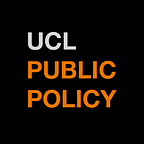Translating research into policy — who are ‘the policymakers’?
The value of translating evidence-based research into effective policy making is increasingly recognised and understood within higher education. We use the word ‘translation’ to describe the mobilisation of knowledge into policy, but we need to be more careful about the language we use. This word in its literal sense can obscure the complex reality of the relationships between the worlds of research and policymaking.
Institutions are devoting considerable resources into helping academics build their skills, so they can communicate complex science or technical social science into ‘user friendly’ and digestible soundbites. Neatly re-packaged research alone isn’t enough however, you also need to be an effective communicator.
As Cairney and Kwiatkowski remark:
“To communicate effectively in policymaking systems, actors need to understand how policymakers process evidence and the environment in which they operate. […] [E]ffective communication requires the suppliers of evidence to see the world from the perspective of their audience and understand the policy process in which they engage.”
Cairney and Kwiatkowski’s emphasis on researchers effectiveness requiring a high degree of empathy is eminently sensible and common sense. Yet with a significant amount of effort going into developing practical steps for effective communication, what continues to puzzle me is how little attention is paid to the specifics of the language we use to talk about this problem.
Catch-all phrases like ‘policymakers’ are often used to describe a wide variety of roles and functions, such as government analysts, policy officers in local government strategy teams or policy officers in public affairs functions within academies and societies. This may be as a result of shorthand, attempting to reduce word counts in documents, for example. However, in my opinion, such universal terms are unhelpful as they are not targeted enough and therefore make the effective translation of research evidence more difficult.
This lack of specificity of language may explain why researchers and policymakers struggle to bridge the divide between research and policy and why naïve and broad-brush assumptions such as ‘evidence makes policy’ exist. The reality is, there are a multiplicity of roles, functions and responsibilities that lie underneath the surface of the ‘policymaker’ label.
According to Harper Collins definition “In politics, policymakers are people who are involved in making policies and policy decisions”. The role of a policymaker has been described by David Allen Green, in his blog as:
“to be clear about what is to be achieved, and …[to] look carefully at the tools available: the “hard law” of statutes, the “soft law” of codes of practice and circulars, the priorities for a budget, the optimal allocations of spending, the requirements of new administrative processes, the need for political leadership and effective communication, and many other things. A good policymaker will, of course, base the policy in what evidence is available and he or she will be anxious to work out the likely intended and unintended effects.”
Whereas, the role of a strategy analyst in DHSC for example is:
“outward facing, and is to work with the whole Department including policy teams and external stakeholders to shape and drive a Departments strategic work programme, and respond to Ministerial and Departmental priorities. They are expected to have good strategic and quantitative analysis skills so that they can also build relationships with broad analytical communities and share advice support and expertise across a range of strategic priorities.” According to Gov.UK, there are 28 recognised professions that support the civil service and each could include policymakers of all persuasions given that they are “open to anyone working in government departments, agencies or non-departmental public bodies”.
These somewhat crude but illustrative examples reflect what is in reality a subtle but nevertheless important distinction. Unless you understand the differences, and are able to signal that you do within your communications, then the expectations of both sides are likely to go unmet. Indeed, the researcher who feels that robust evidence can bring about policy change can be left feeling battered and bruised when they learn that they have spent months speaking with the policy officer who is in the communications team of a Whitehall department, rather than the person making the policy.
Attempts to demystify the black box of policymaking and get under the skin of the profession do exist, through secondments and fellowship schemes. The Parliamentary Office for Science and Technology run a Parliament-oriented one and the Research Councils have schemes for PhD students. Many universities also offer schemes. The Centre for Science and Policy at Cambridge has the explicit mission for ‘creating opportunities for public policy professionals and academics to learn from each other’. At UCL Public Policy we also have a Policy Fellows programme that offers the opportunity for those within parliament and government to spend time at UCL and for UCL researchers to spend time in policy-focused organisations.
These schemes are important as they help to build a culture of researcher-policy engagement and enable both sides to better understand how research aligns with policy initiatives. Researchers are taught to ask vital questions such as whom to communicate to, what to communicate, when to communicate and what’s the desired change as a result. However, these schemes are limited by for example the amount of funding attached, time available for those to participate, and so issues of scale persist.
In an excellent blog by Kathryn Oliver and Annette Boaz they question whether investment in evidence to policy ecosystems, such as What Works centres or the development of UKRI (and I would add increased investment in policy secondments) signals a step change in how we understand the use of research evidence. This is a goal of UCL Public Policy and so whilst like them I am hopeful it does, and that the better flow of evidence can lead to culture change, I fear this will only become a reality if we enrich our language of academic-policy engagement, policy and policymaking to better reflect its many strands.
Dr Olivia Stevenson is Head of UCL Public Policy.
